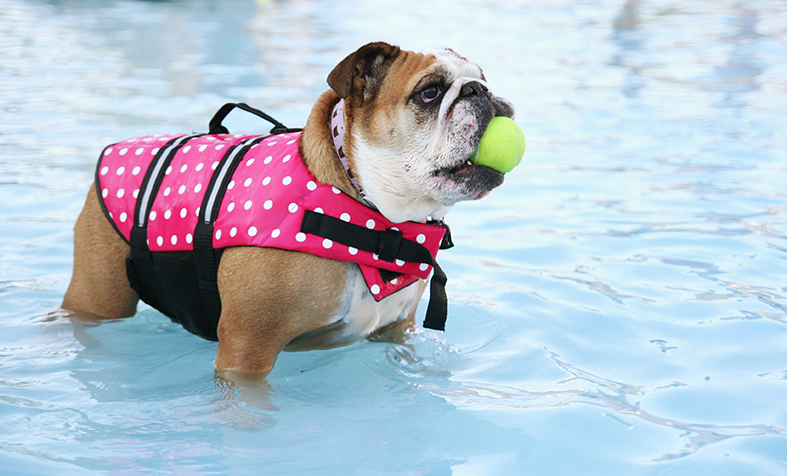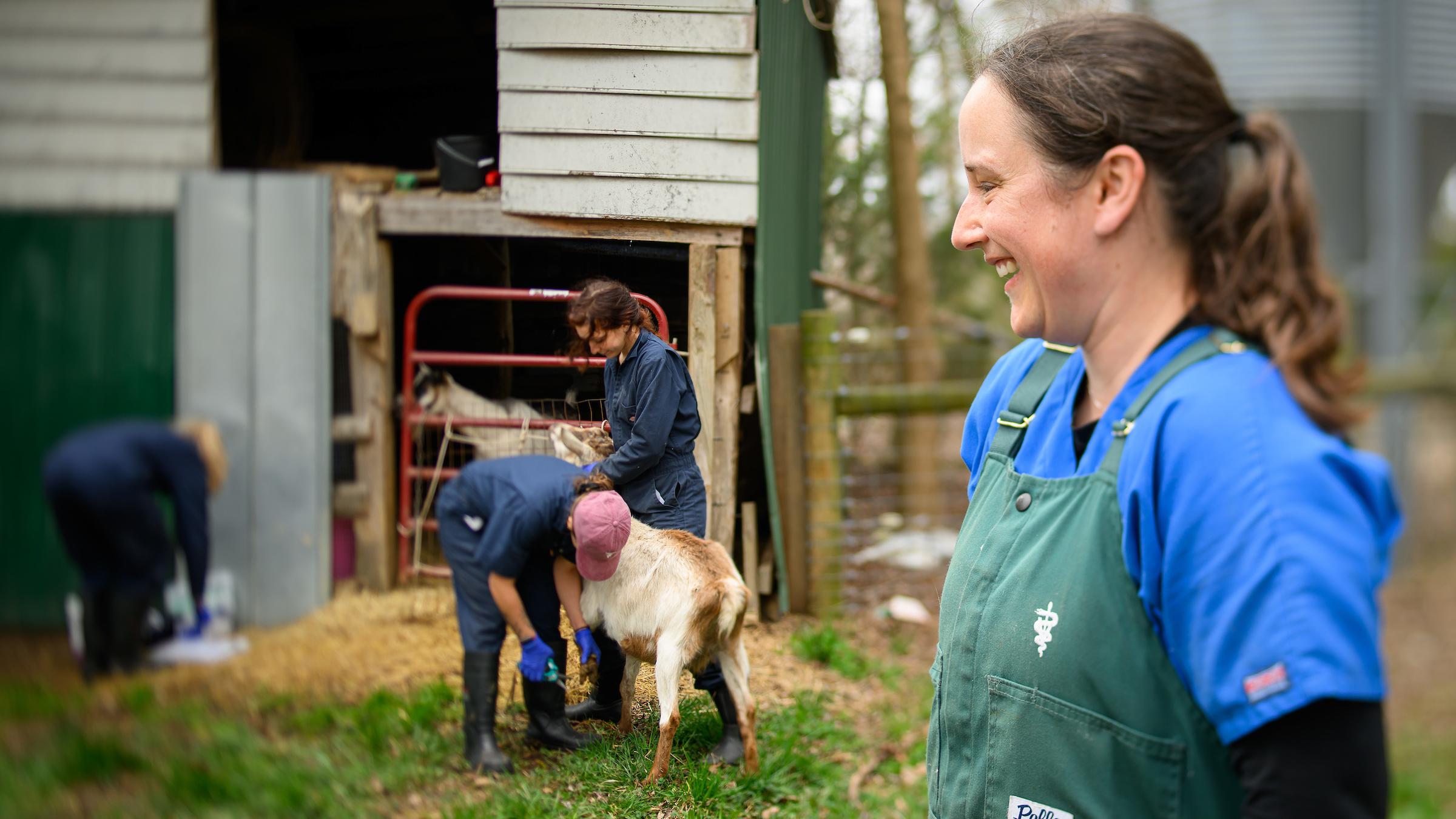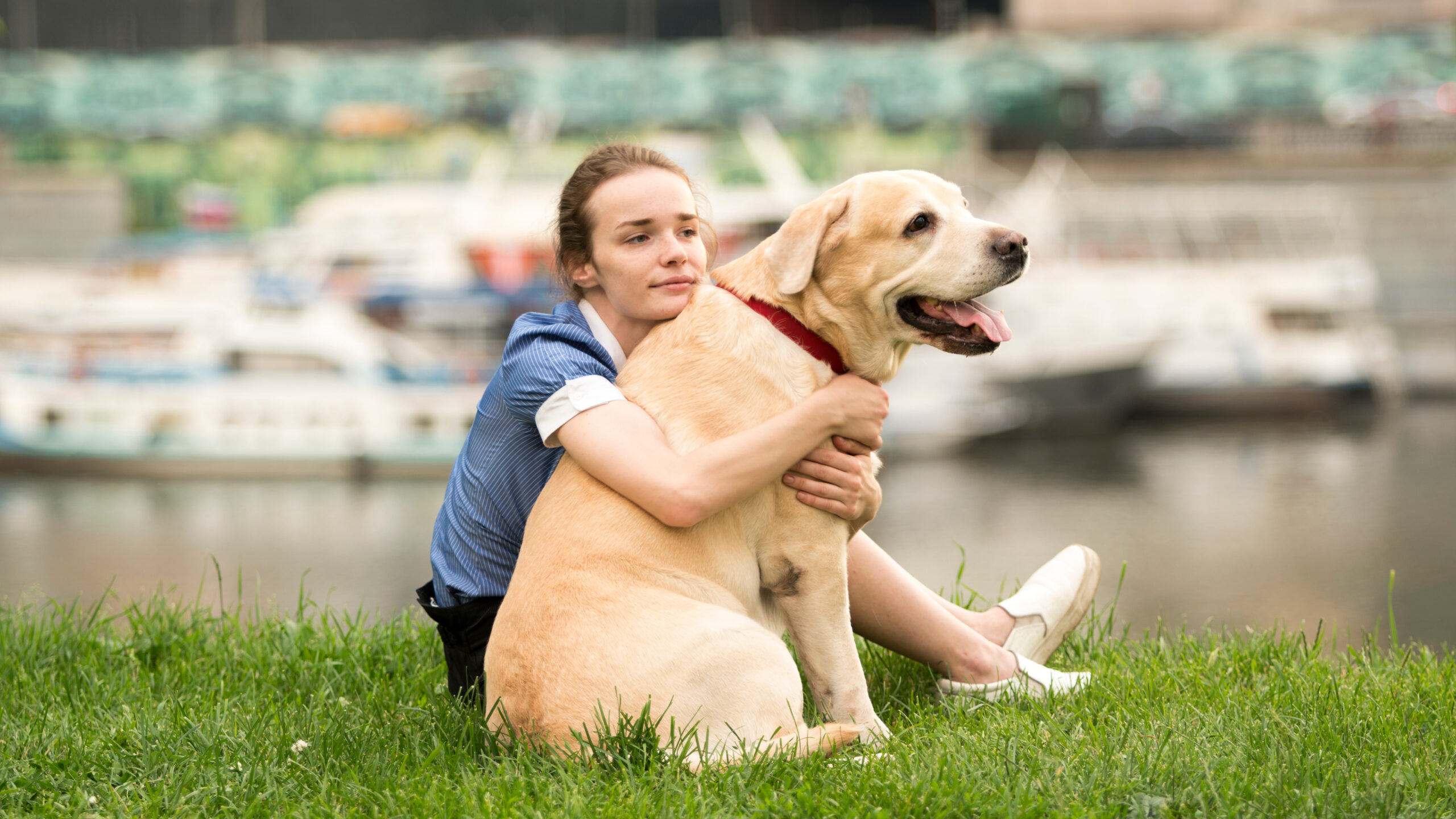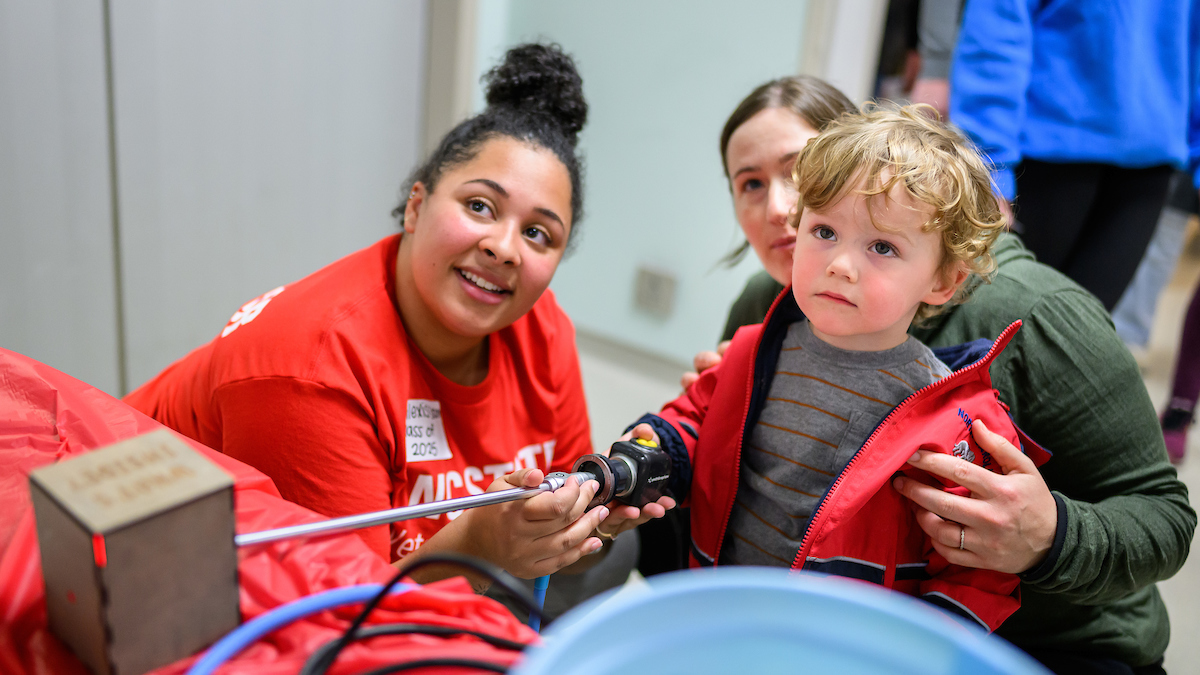NC State Veterinary Hospital Offers Tips to Keep Pets Safe and Healthy this Summer

With blazing heat and humidity lingering — and official heat advisories issued for the Triangle this weekend — Steve Marks, associate dean and director, veterinary medical services at the NC State College of Veterinary Medicine and Veterinary Hospital, does not want your outdoor activity to include an emergency visit to the veterinarian.
“Pets can suffer from heat stroke, dehydration, even sunburn,” says Dr. Marks. “Your pet has limited sweat glands—found mostly on the nose and the pads of the feet—and it does not take long for a pet to become dangerously overheated. While all pets are at risk, short-nosed dogs and pets that are older, very young, overweight, have heavy coats, and those with preexisting disease may need extra care.”
Marks advises owners to take immediate action if the pet is panting excessively or has difficulty breathing, has an increased heart and respiratory rate, dry gums, glazed eyes, drools, appears tired, weak or in a stupor.

“Place the pet in the shade or air conditioning and apply cool—not cold—water to reduce the animal’s core body temperature,” Marks says. “Get help from your veterinarian as soon as possible.”
Here are some basic hot weather tips to keep the summertime living easy:
- Take walks in the cooler parts of the day and carry water with you for you and your dog. Remember asphalt gets very hot. If you cannot hold your hand on the asphalt for 30 seconds it is too hot to walk your dog.
- Make sure your dog has ample shade and a constant source of cool water when outside. Consider an inexpensive child’s plastic pool as a quick cool down for your pet or a cool spray from the garden hose.
- Never leave your dog in the car. Even on a pleasant day, temperatures in a parked car with the windows rolled down can exceed 100 degrees within 10 minutes.
Other, perhaps less publicized potential concerns include toxic agents that could be consumed such as plant food and fertilizers; insecticides and pesticides; slug, snail, mole and gopher baits; coolants; citronella candles; and insect coils that may be around the home and yard.
A compost bin or garbage can is another common yard element that may result in an emergency visit to the veterinarian with your pet having uncontrolled, non-stop shaking—symptoms of potentially lethal tremorgenic mycotoxin intoxication from ingesting fungus found on decomposing objects.
Also, be careful of ponds and other stagnant water that could contain various water-borne parasites such as Giardia, Coccidia, Leptospira, Campylobacter, and Cryptosporidia and cause mild to severe diarrhea.
As a resource for pet owners whose veterinarian is not available, the Veterinary Hospital at NC State provides a Small Animal Emergency Service 24 hours a day, seven days a week. Owners should call 919.513.6911 for a small animal concerns and 919.513.6630 for large animal issues.
- Categories:


